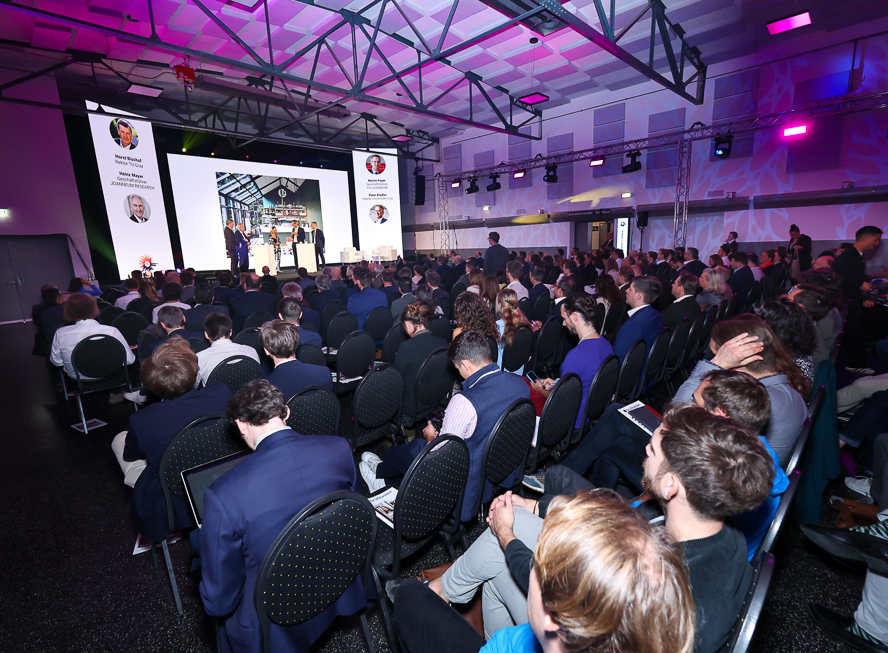The speakers at the first Technology Impact Summit in Graz at the beginning of October agreed that artificial intelligence is necessary for Austria and Europe. Opinions differed, however, on whether the cautious approach and strong focus on security in the field would help or harm Europe.
The summit was organised by the University of Graz, Graz University of Technology, Joanneum Research and the FH Joanneum. In his welcoming address, Peter Riedler, rector of the University of Graz, called for a commitment to science and education, similar to that in Scandinavia. Horst Bischof, rector of Graz University of Technology, and Heinz Mayer, managing director of Joanneum Research, pointed out the great expertise in the areas of cybersecurity and the development of digital twins. Martin Payer, CEO of FH Joanneum, emphasised that highly qualified talent is a clear location advantage for Styria.
Martin Kocher, Minister of Economic Affairs, explained which trends will shape the future. These include AI, digitalisation, demography, automation, decarbonisation and (de)globalisation. He said that AI can make work more efficient, but it is not yet known exactly how much. So far, digitisation has contributed little to productivity, in contrast to automation in the 1960s. Kocher emphasised that more needs to be invested in AI research. Austria should focus on applications where it is not competing with the big tech companies.
Afterwards, the philosopher Konrad Paul Liessmann and the technology lawyer Viktor Mayer-Schönberger discussed the advantages and disadvantages of the new algorithms. Liessmann says that only those people have to be afraid of AI who are satisfied with average. Mayer-Schönberger emphasised that not all people are creative and original. Liessmann believes that AI has no motivation and therefore only delivers mediocre results. Mayer-Schönberger sees AI as a tool for accessing knowledge. He calls for a learning legal system that can react to negative developments.
From theory to practice
The afternoon session focused on practical applications. Experts discussed the legal rules for AI, Europe's role in the development of AI and the ethical issues that arise in the process. Jana Lasser from the University of Graz believes that Europe has a chance if it specialises in certain market segments and uses high-quality data as a basis for AI applications. Markus Kneer highlights the ethical questions raised by the technology. He says that we need to think carefully about how to allow AI systems to access sensitive data and decisions.
In this context, Jeannette Gorzala from the European AI Forum defends the EU's AI Act and emphasises the advantages of a uniform legal framework. Thomas Burri from the University of St. Gallen, on the other hand, criticises the AI Act, saying that it could harm the European economy.
The first Technology Impact Summit showed that there are no easy answers when it comes to artificial intelligence. It opens up many opportunities, but difficult challenges also await the economy and politics. The insights from the summit are an important building block for the responsible use of AI.
AI-generated audio summary (English)
In keeping with an AI conference, the day was summarised in an audio format using Google AI.
